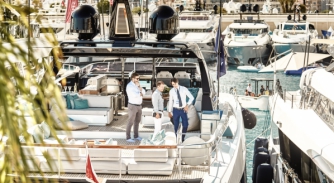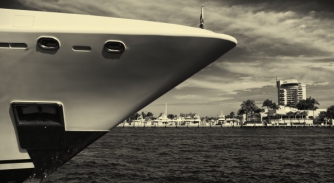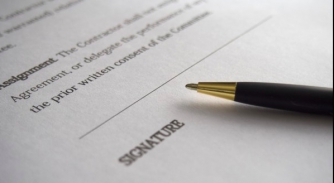Out now: Clyde & Co podcast series 2.2
Giovanna Cabbia, Clyde & Co Partner discusses the most common form of sale and purchase agreement…
This second series of Clyde & Co podcasts seeks to demystify the process of buying a superyacht. Yacht brokers, family office advisers, bankers, and senior Clyde & Co lawyers join superyacht industry commentator John Leonida to discuss every aspect of buying a superyacht. We hope you enjoy listening.
In episode two, Giovanna Cabbia, Clyde & Co Partner and head of the firm’s superyacht team discusses the most common form of sale and purchase agreement used in selling and buying previously owned superyachts.
As discussed by Cabbia and Leonida, The Mediterranean Yacht Brokers Association sale and purchase contract, also known as the MYBA MOA is the most commonly used form of contract in superyacht acquisition. Although it is a pre-printed document and may appear standard, every deal has its unique features, and as a consequence, the MYBA MOA will need to be supplemented.
Typically, at least two addenda are needed for the MYBA MOA. The first to reflect the regulatory uniqueness of each superyacht and the legal and tax profile surrounding each superyacht. That is the list of documents a seller needs to deliver when the yacht is sold, and that includes the proof that the person selling or buying the superyacht has the legal power to do so. The other addendum covers all the commercial aspects of the deal which the generic standard form does not cover.
For example, are there any pre-booked charters that need to be transferred, and are there any items that are not included in the sale? What about scheduled repairs? Are there repair works to be completed by the seller before the completion of the sale? These kinds of issues must be clearly understood by everyone. Also, any understandings or arrangements made verbally need to be put in writing.
Sometimes, however, presumptive superyacht buyers will only seek legal advice after they have signed what they think is the standard contract that everyone signs. This is a common set of circumstances for Giovanna Cabbia who comments:
“Well, sadly that often happens because clients get overexcited. They want to get on with the deal and lock in the transaction, but ultimately it really depends on how bad the contract is and then we would try to renegotiate whatever is prejudicial to them or find a way to renegotiate the terms at a second stage when you enter into the sea trial and condition survey phase, because the MYBA MOA does have a mechanism that allows to, in effect, renegotiate terms of the sale”
Please see the link to the full podcast episode here.
Profile links
NEW: Sign up for SuperyachtNewsweek!
Get the latest weekly news, in-depth reports, intelligence, and strategic insights, delivered directly from The Superyacht Group's editors and market analysts.
Stay at the forefront of the superyacht industry with SuperyachtNewsweek
Click here to become part of The Superyacht Group community, and join us in our mission to make this industry accessible to all, and prosperous for the long-term. We are offering access to the superyacht industry’s most comprehensive and longstanding archive of business-critical information, as well as a comprehensive, real-time superyacht fleet database, for just £10 per month, because we are One Industry with One Mission. Sign up here.
Related news

Out now: Clyde & Co podcast series two
In the first episode of the new series, Jamie Edmiston, CEO of Edmiston, gives his insights into the buying process for prospective owners
Owner

What does it mean for a yacht to be seized?
Duncan Bateson, Partner at Ince, gives insight into the latest developments related to Russia, sanctions and the superyacht industry
Business

All that’s missing is the yachts
Is the impact of the UK’s superyacht industry at times overlooked?
Business

One step forward, two steps back
Failing to take refit seriously by Giovanna Cabbia, Clyde & Co and John Leonida of LP Squared
Business

Liquidated Damages Clauses
Mark Needham, Partner at Hannaford Turner LLP, outlines the relevance to this industry of a recent court judgement
Business
Related news
Out now: Clyde & Co podcast series two
3 years ago
What does it mean for a yacht to be seized?
4 years ago
All that’s missing is the yachts
4 years ago
One step forward, two steps back
4 years ago
Liquidated Damages Clauses
5 years ago
NEW: Sign up for
SuperyachtNewsweek!
Get the latest weekly news, in-depth reports, intelligence, and strategic insights, delivered directly from The Superyacht Group's editors and market analysts.
Stay at the forefront of the superyacht industry with SuperyachtNewsweek




